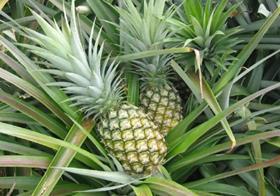
Costa Rica’s Ministry of Agriculture and Livestock (MAG) has introduced stricter sanitary controls on the exports of pineapples, in light of increasing interceptions in shipments bound for the US because of the discovery of insects.
However, producers have reportedly rejected the measure, claiming the new plan has already caused them losses of US$2.3m in the first 15 days of enforcement.
The new controls, enacted by the State Phytosanitary Service (SFE), mean containers are now inspected at the port of departure, whereas before inspections were carried out at farms and in packhouses.
Abel Chaves, president of the National Chamber of Producers and Exporters of Pineapple (Canapep), told La Nación that there is no capacity at the ports to inspect up to 2,000 containers per week. He warned that the departure of the fruit was being delayed and in some cases it didn’t get to the vessels in time.
MAG minister, Luis Felipe Arauz, acknowledged last night that the measure was tough, but said that it was necessary because of the increase of pest interceptions entering the US in April. About half of the fruit produced in Costa Rica is sold to the US.
Canapep acknowledges that interceptions of US-bound pineapples due to the presence of insects had risen from 98 cases between January and April 2015 to 129 cases in the same period of this year.
But Chaves said that only 10 cases were returned to Costa Rica and that this increase did not cause concern in the US, as some people were claiming.
According to Chaves, inspections at the pier requires the opening of containers loaded with fruit that have come at 8oC from the packing plant, thereby breaking the cold chain. He complained that truck queues start forming causing delays in arrival at the docks.
In 2015 pineapples were the second biggest export from Costa Rica after bananas. Last year they generated US$805m in foreign currency, down from US$863m in 2014, according to the foreign trade promotion agency (Procomer).
However, this year has shown a recovery of 5 per cent in the first four months of the year, Procomer said.



